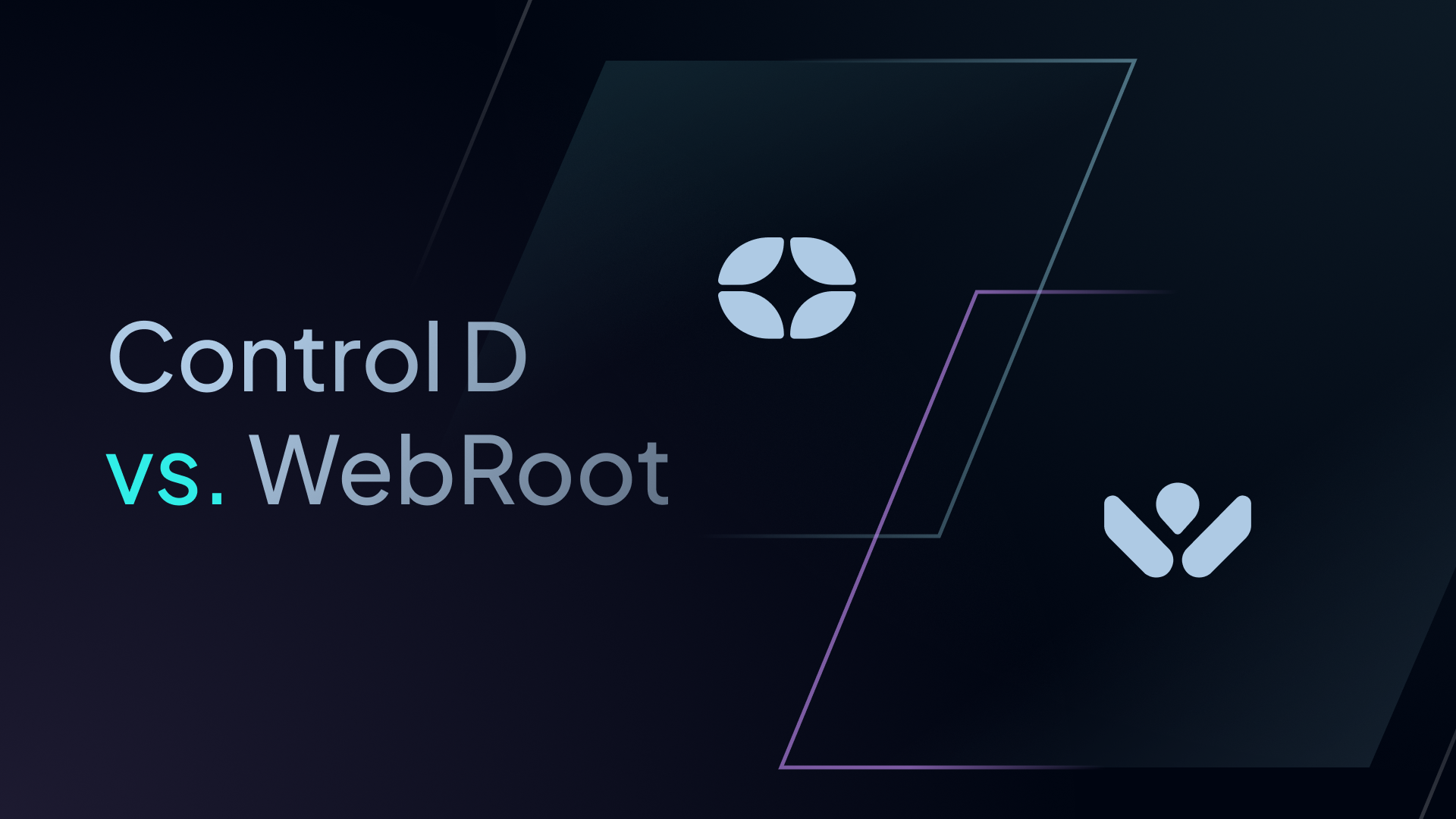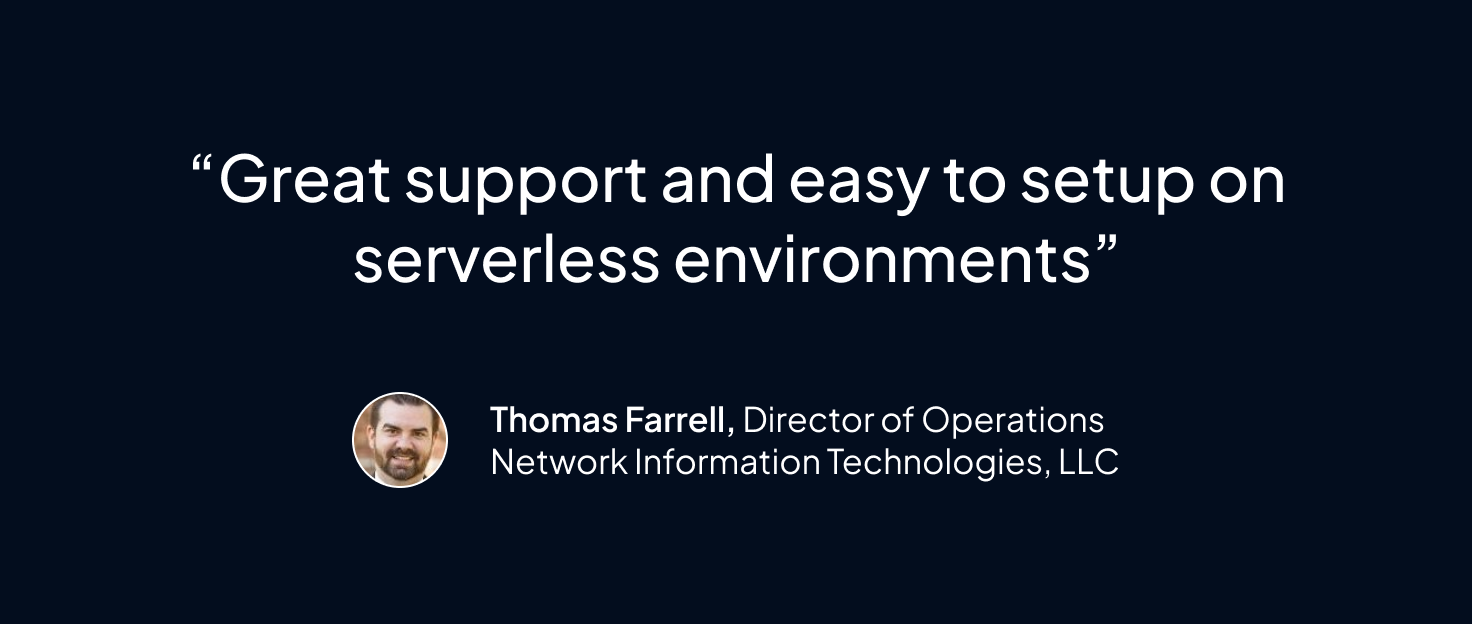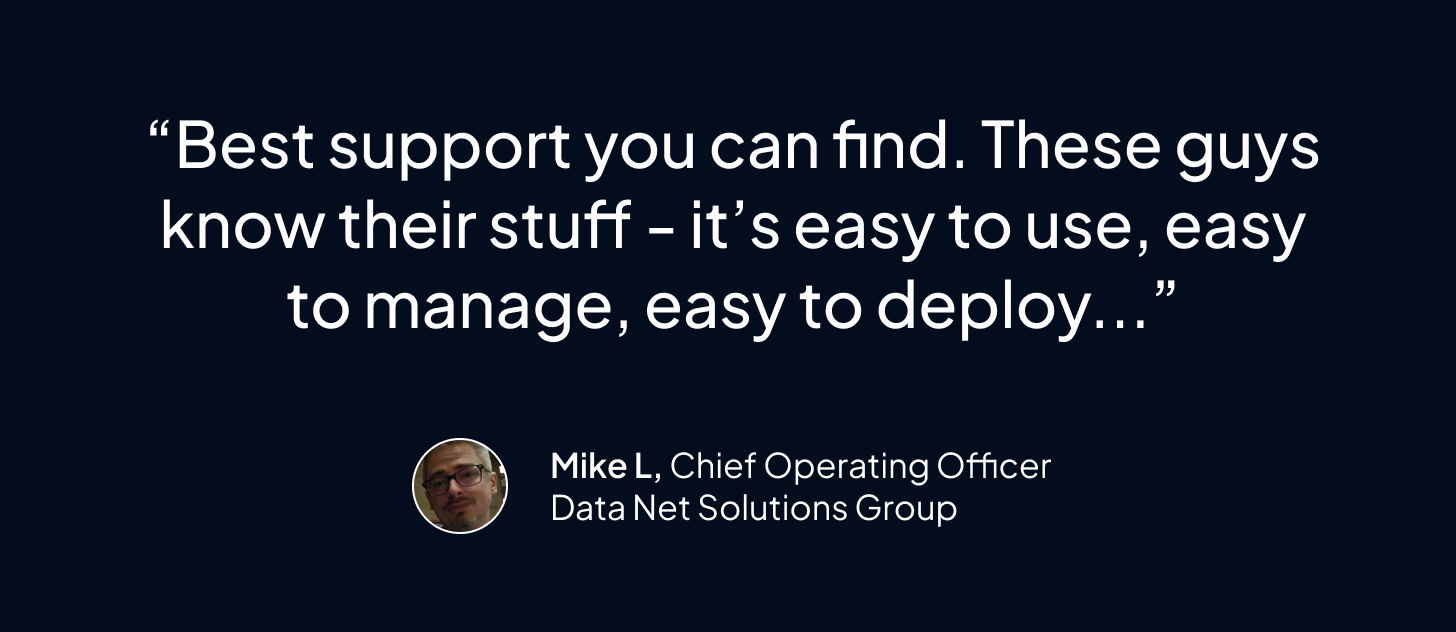Control D vs. WebRoot: What's the Better DNS Security Service?
We analyze and compare Control D against WebRoot, exploring their pricing, features, analytics, support, and more.

Having been in business since 1997, one would assume WebRoot set the standard when it released its DNS protection product in 2017.
But how does it hold up in 2025?
This article explores how WebRoot stacks up against Control D, a modern, customizable DNS management solution designed to be a one-stop shop for all things DNS.
We analyze both platforms across key categories, such as:
- Plans
- Pricing
- General Features
- Clients, Applications, and Integrations
- Analytics and Reporting
- Support
Plans
Both Control D and WebRoot keep onboarding simple by removing plans. Instead, both platforms distinguish what type of organization is signing up, as this affects the pricing structure.
There are four main organization types:
- Enterprises
- SMBs
- MSPs
- Schools and Non-Profits
WebRoot goes further by separating state and government institutions, something that Control D does not.
Pricing
| Pricing | Control D | WebRoot |
|---|---|---|
| School/Non-Profit | $0.5/Endpoint | Unknown |
| MSP | $1/Endpoint | Unknown |
| SMB | $2/Endpoint | Unknown |
| Enterprise | Contact | Starts at $2.5/seat/month |
WebRoot’s business DNS protection is priced at $2.5/seat/month for 25 seats. If you require more than 50 seats, you must request a quote from their sales department.
MSPs, schools/non-profits, and government institutions may receive a special discount, but again, you must contact WebRoot for a custom quote.
Note: Tiered pricing is available, but its structure is unknown. Also, prices are based on an annual subscription; further discounts are available for multi-year licenses.
On the other hand, Control D offers a transparent and cost-effective pricing model:
- School/Non-Profit: $0.50/endpoint/month
- MSP: $1/endpoint/month
- SMB: $2/endpoint/month
- Enterprise: Contact
General Features
| General Features | Control D | WebRoot |
|---|---|---|
| Basic Malware & Phishing Protection | ✅ | ✅ |
| Advanced ML-Based Malware Protection | ✅ | ✅ |
| Flexible Content Blocking | ✅ | ✅ |
| Blockable Services | 1,000+ | ❌ |
| Geo-Custom Rules | ✅ | ❌ |
| Modern DNS Protocols | ✅ | ✅ DoH only |
| Traffic Redirection | ✅ | ❌ |
| Ad & Tracker Blocking | ✅ | ❌ |
| Remote Browser Isolation | ❌ | ❌ |
| Per-user Policies | ✅ | ✅ |
Blockable Services
In addition to category-based content filtering, Control D can filter individual apps, vendors, and websites.
This is thanks to its Services feature, which allows users to block, bypass, or redirect over 1,000 individual apps, tools, and groups of websites across various categories.
For instance, suppose you need to block social media platforms like Facebook and Instagram while leaving others accessible. With Control D, there’s no need for long blocklists or custom rules; you can block these specific apps in just a few clicks.
This level of precision allows you to tailor filtering policies exactly to the needs of your organization, team, or user. In contrast, Webroot lacks this granular approach.
Geo-Custom Rules
Control D’s Geo-Custom Rules is a feature designed to provide fine-grained control over your DNS traffic. This capability lets you block, redirect, or bypass DNS queries based on their origin or destination.
For instance, you can enforce rules for queries:
- Originating from IP addresses in specific countries or ASNs
- Resolving to IPs in particular regions, countries, or networks
Typical use cases are blocking traffic originating from high-risk countries like Russia or redirecting queries resolving to an ASN to a proxy location – more on this in a second.
WebRoot does not offer such a feature.
👉 Learn more about Geo-Custom Rules and its use cases
Modern DNS Protocols
Control D supports all modern DNS protocols, including DNS-over-HTTPS (DoH) and DNS-over-TLS (DoT), ensuring secure and private browsing across all devices.
In contrast, WebRoot is limited to DoH.
Traffic Redirection
Control D’s Traffic Redirection feature allows you to reroute DNS traffic through proxy servers in over 100 exit locations across 60+ countries, eliminating the requirement for a VPN.
You have the ability to set a default fallback location – ensuring your IP address appears to originate from a specific country – and enforce customized rules for specific Services or domains.
For example, you might route most of your network traffic through a U.S. server while redirecting specific Services like Spotify through the UK.
This feature isn’t available with WebRoot.
Blocks Ads & Trackers
Ad and tracker blocking protects businesses from distractions, privacy invasions, and potential threats. Control D delivers comprehensive protection by blocking ads and trackers across all domains, ensuring a clean and secure browsing experience.
On the other hand, WebRoot can block a category of websites called “parked domains”. These sites host minimal content or click-through ads designed to generate revenue for the owner but offer little value to visitors.
While this might address a narrow category of domains, WebRoot falls short of addressing ads and trackers across the broader internet like Control D does.
Threat Detection Capabilities
Both Control D and WebRoot offer basic malware and phishing protection, as well as advanced machine learning-based malware protection. However, their respective effectiveness is up for debate.
An independent test found Control D’s malware filter had a 99.97% block rate, the highest among all competitors. It beat major players in the DNS market, such as Google, Cloudflare, and Quad9.
Although WebRoot was not included in that particular test, numerous reports online highlight concerns about its accuracy in detecting threats. Here's one such example:
There’s also the matter of performance:
Clients, Applications, and Integrations
| Clients, Applications, and Integrations | Control D | WebRoot |
|---|---|---|
| Windows | ✅ | ✅ |
| MacOS | ✅ | ✅ |
| Linux | ✅ | ❌ |
| iOS | ✅ | ❌ |
| Android | ✅ | ❌ |
| Router/Network | ✅ | ✅ |
| Single Sign-on (SSO) | ✅ | ✅ |
| RMM Integration | ✅ | ✅ |
| Full API Access | ✅ | ✅ |
| Active Directory Support | ✅ | ✅ |
Cross-Platform Support
Control D is designed to support every device businesses rely on. It ensures seamless integration across your entire network from macOS, Windows, and Linux systems to iOS, Android, browsers, and even routers.

WebRoot, on the other hand, has a more limited scope, working only with Windows, macOS, and routers, leaving mobile devices and Linux systems unsupported.
Analytics and Reporting
| Analytics & Reporting | Control D | WebRoot |
|---|---|---|
| Admin Action Logs | ✅ | - |
| Full Query Logging | ✅ | ✅ |
| Query Log Retention | 30 days | 30 days |
| Query Log Export | ✅ | ✅ |
| Report Retention | 30 days w/ hourly time series granularity, 1 year w/ daily time series granularity | 90 days |
| Analytics Retention | Up to 1 year | - |
| Data Export | ✅ | ✅ |
| SIEM Log Streaming | ✅ | ✅ |
| Per-user Reporting | ✅ | ✅ |
| Scheduled Reporting | ✅ | ✅ |
| Data Storage Regions | NA/EU/AU | - |
| Custom Storage Regions | Additional costs | ❌ |
Query Log Retention
Control D stores query log data for up to 30 days, whereas WebRoot has a retention period of up to 30 days.
Report Retention
Control D generates reports for up to 30 days with hourly time series granularity or 1 year with daily time series granularity. WebRoot allows reports going back 90 days.

Data Storage Regions
Control D provides flexibility in data storage with three default regions: North America, Europe, and Australia. For businesses with specific compliance or localization needs, Control D also offers the option to configure a custom data storage region upon request, though this comes with an additional cost.
WebRoot does not offer this capability.
Support
| Support | Control D | WebRoot |
|---|---|---|
| Community Support | ✅ | ✅ |
| Docs/Knowledge Base | ✅ | ✅ |
| Email Support | ✅ | ✅ |
| Advanced Chatbot | ✅ | ❌ |
Quality of Support Received
Having multiple channels of support is great, but having quality customer support is far more important.
With WebRoot, users often complain about being unable to reach the support team or receiving unhelpful advice when they do.
This is in stark contrast to the support users experience with Control D.

Chat Support
Control D’s chat support is provided by Barry, an intelligent chatbot designed to handle nearly every question you might have.
Powered by machine learning technology, Barry draws from Control D’s comprehensive documentation and the collective expertise of its team to deliver instant, accurate answers to 99% of queries. This includes questions on troubleshooting a configuration issue, fine-tuning a filtering policy, or simply exploring Control D's features.
Got a question that stumps even Barry? You can seamlessly escalate your query to a human support agent.
WebRoot does not provide chat support functionality.
👉 Find out more about Barry and his capabilities
Final Thoughts
While WebRoot provides baseline DNS security, there are countless complaints online about its effectiveness, poor customer support, and lack of advanced functionality.
As outlined in this article, Control D shines in these areas with innovative features like Traffic Redirection and Barry, as well as its unmatched threat detection capabilities, all at a more affordable price point.


